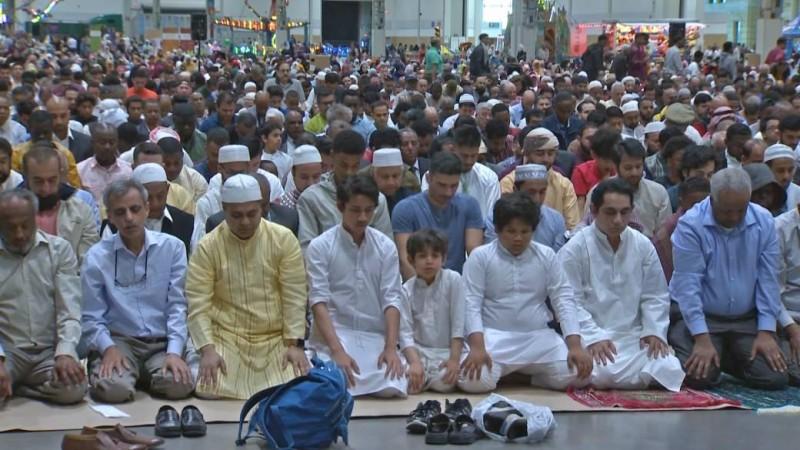With the holy month of Ramadan coming to its end, Muslims across the globe are asked to minimise their celebrations for Eid-ul-Fitr during the lockdown induced by the coronavirus pandemic.

Guidelines for minimal Eid celebrations
Observed by the Muslims worldwide, Ramadan is the ninth month in the Muslim calendar. This year, the holy month began from April 24 and ends with the grand celebrations of Eid ul-Fitr or the "Festival of Breaking Fast" which is expected to fall on May 23 or 24 with respect to the sighting of the moon.
As a measure of precaution, the police force has ensured all mosques and other pilgrimage centers in the country remain closed during the lockdown although, during the month, the devotees usually spent their time in mosques engaged in reading the Quran, doing special prayers, and performing the Hajj pilgrimage in Mecca.
In its new set of guidelines issued by Imarat-e-Shariah Karnataka, the advisory urged people to maintain all precautionary health measure during the Eid celebrations while keeping it simple. The organisation's six guidelines regarding this year's celebrations is issued by Ameer-e-Shariath, Sageer Ahmed Rashadi.
Check out the six guidelines issued for a safe celebration of this year's Eid-ul-Fitr:
- Avoid useless spending and focus on helping and caring for your poor and needy relatives as much as you can. Approach them with humility, compassion, and equality as you keep your celebrations simple this time.
- As it is impossible to hold any kind of public gatherings and meetings, no Eid namaz will be organised in Eidgahs. In a Masjid, not more than five members should pray Eid namaz during the early morning hours. Others should pray Eid namaz at their residence while following the Islamic rules and government regulations. They can also individually pray two or four rakats Chasht Nafil namaz at home.
- Avoid hugging and handshaking while exchanging greetings on Eid and do not go out of your house unnecessarily. Also, avoid getting out meeting relatives and friends as much as possible as any kind of travel during the day amid such a frightening situation is harmful.
- Before Eid, make sure to pay Sadqa-e-Fitr amounting to Rs 70.
- Make as much as Duas as possible on the day. The day of Eid is considered as a moment of acceptance.
- After Eid, a request will be made to the government to open the religious places by including all the religious heads.














